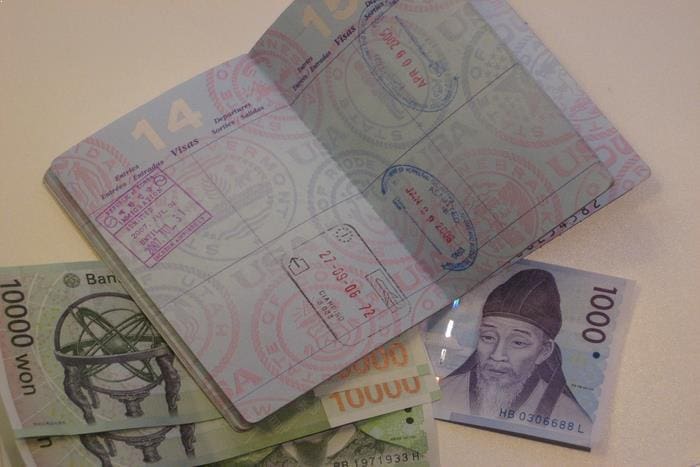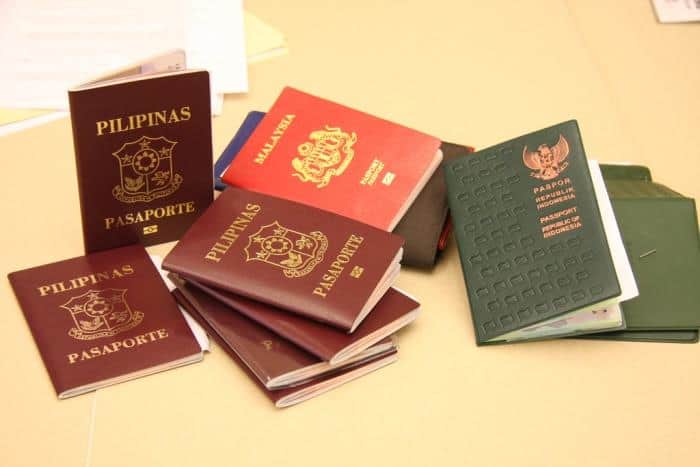5 Reasons Crypto Investors Need a Second Residency
July 20, 2023
This article discusses five reasons why every crypto investor needs a second residency.
Cryptocurrency investors have begun to face an increasing onslaught of changes as governments step up tax enforcement and regulation of the growing crypto market. Smart investors have begun to examine their offshore options to adapt to these developments.
There are a limited number of crypto-friendly countries out there, and without a doubt, cryptocurrency investors need to protect themselves with offshore strategies, particularly those investors from the Western world.
Those who are seriously looking to adapt to the mounting regulations should take a small portion of their crypto wealth and invest in second residencies and in one of the best passports for crypto investors to ensure the long-term viability of their crypto investing.
Why?
Because going where you’re treated best will always add value to your life, business, and asset portfolio. We can help you go where you’re treated best. All you need to do is reach out to us.
1. Opportunity Cost

This first reason on the list largely applies to US citizens, but it can still apply to citizens of other countries as government bodies in the world overstep up enforcement and regulation on things like ICOs (Initial Coin Offerings) that use cryptocurrencies to raise funds for other endeavors.
We have had several US crypto investors come to us explaining that they cannot participate in certain ICOs because those running the fundraising operation do not want people with a US address, residence permit, or citizenship.
Institutions like the Securities and Exchange Commission and others are, no doubt, going to come through and make it very difficult to invest in ICOs.
2. Tax Exposure

If you can bypass the first challenge and manage to get into crypto deals as a US citizen – or if you have simply already invested in crypto – you will experience tax exposure.
Now, this is not an article for the crypto-anarchists who plan on keeping everything offline and living in their basement. But, if you are looking to take your cryptos and have them on the exchange, turn them into other kinds of wealth, buy real estate, and facilitate other investments, governments are stepping up enforcement on taxes.
You’ve seen what happened with CoinDesk and the IRS, where there’s a lot more information sharing going on – that has been a global trend for years in the offshore industry as a whole. There is simply more information sharing as governments have become much more aggressive against banks and many other institutions.
So, it is no surprise that we are seeing more and more regulation with many of these exchanges.
For US citizens, if you are trading or earning capital gains, it doesn’t matter where in the world you live, you are going to pay tax on those profits as a US citizen.
Unfortunately, the only real option available to US citizens who want to eliminate this taxation is to give up their US citizenship. Having one of the best second passports for crypto investors gives you the option to renounce and “go where you’re treated best” to a country where they don’t tax you.
You can both live in and be a citizen of a country where they’re not going to tax your trading activities at the new crazy rates or tax you on capital gains when you sell your cryptocurrencies.
For people who are from Australia, the UK, Canada, and other countries, you may not necessarily have to give up your citizenship to reduce your tax burden, but having a residence permit may help, and being able to live outside your home country would allow you to stop the taxes on future gains and future trades.
3. Uncertainty Surrounding Crypto Regulations

As we’ve discussed, we’ve seen a lot of new regulations coming out for cryptocurrencies. Even the best adapters understand that the intensity of this change is difficult to adjust constantly.
What is the US going to do?
What is the SEC going to do?
What are other countries around the world going to do?
How will all of this impact your ability to hold these assets?
What’s going to happen with the banking system and your ability to convert your cryptocurrency to that platform?
What are the rules going to be if you want to take those cryptos and convert them into other assets?
There is a lot of uncertainty that is less dependent on the strength of cryptocurrencies in and of themselves and more on the governments dictating how you can use your money. This is just another reason why it could be beneficial to distance yourself from your home country and find a country that is less obsessed with controlling your every financial move.
At the very least, you should have another option in your back pocket – be it a place where you have a residence permit or a second passport. If you have a backup plan, you have the option to break free of one country if they start to make your life too difficult with excessive regulation.
As uncertain as things may be, the one thing you can count on is that there will be more and more restrictions on people who want to use their cryptocurrencies in the real world. It’s going to be much more difficult, so plan accordingly.
4. Crypto Liquidity
Another factor that is influenced by uncertainty is the simple question of liquidity. With more regulations, what are banks going to do if you want to cash things out? Especially if you have the wrong citizenship.
There are certainly plenty of non-bank ways to use cryptocurrencies, but again, for the person who wants to eventually own other assets, we see liquidity as potentially being an issue with increased regulation.
5. Running as an Active Business

We dealt with a client who did an ICO and raised a lot of money. However, as a US citizen, they now have a big US tax bill.
Even though the guy is living outside the US, he’s going to pay millions of dollars in taxes because he’s running an active business in cryptocurrencies.
If he had distanced himself from the United States first, he would have been able to save those millions of dollars and put that money back into his next business… or anything that he wanted.
If you are planning on taking your crypto investing to the next level and turning them into an active business, consider taking a step back and setting up a proper offshore strategy first.
The time and money you spend on a proper offshore strategy will save you potential millions down the road.
Second Passport or a Residence Permit?

It is easy to see that there are a few issues with cryptocurrencies these days.
You have Western countries increasingly stepping up enforcement for tax, expanding regulations that make it harder to operate, and just making life difficult for people who want to invest in cryptocurrencies.
But how can a passport or a residence permit help you?
And how can you know which one you need for your specific circumstance?
If you’re a US citizen, getting a second passport should be your top priority because the US government will follow you no matter where you go. They have regulations of all sorts for US citizens, even if you’re living overseas. Having a second passport as a US citizen is a way to have a call option. If things get too difficult, you can go somewhere else.
For everyone else who’s not a US citizen – namely, folks from other Western countries – having a residence permit and a place to go should be your first goal.
If you have cryptos that you paid half a million for that are now worth a million, and that you believe are going to be worth ten million, you will save yourself a lot of money by simply residing somewhere else with better tax laws.
Having a residence permit and setting up a proper strategy where you leave the home country where you are from allows you to get a lot more benefits. If you can show that you are living elsewhere, whether it’s in Eastern Europe or South America or somewhere in Asia or the Middle East, once you can say, “I live here now,” then you have an advantage.
Crypto investors should look at both. US citizens, especially, need a second passport, but you never know what other countries are going to do that will create the need for a second passport.
Some US citizens may want to exercise that option right away, for others, it’s just good to have in your back pocket. The residence permit, on the other hand, gives you the ability to say, “Hey, this is where I live.” The two work hand in hand as a great series of options, not only to be proactive now in increasing your opportunities but to make sure you are covered and have a backup plan for later.
Where Should I Get My Second Residence or Passport?

Depending on where you’re from and your specific approach, a second passport or residence may play a different role in your offshore strategy. The bigger question is, where do you get a second residence or passport?
With residences, there are many different options, and it is important to consider your lifestyle, where you want to go, and how you want to set up your life.
As to passports, there are a lot of different options. We have numerous different videos on the Nomad Capitalist Channel and hundreds of articles here on the blog where we talk about different passport options.
To help you narrow it down a little, the goal for a lot of crypto investors should be to put out as little money as possible and still get the passport quickly.
Especially as a US citizen, you may want the option of renouncing your US citizenship in a matter of months because, every month that goes by, you may be losing money by not being in ICOs or by paying taxes on your trades.
For this reason, one of the options that are worth considering is going to one of the citizenship by investment programs and donating to get one of the best passports for crypto investors.
From $100,000 and up, you can get a passport in a matter of months. And, if you’re operating at a serious level, the ROI on that can be almost instant.
Other passport opportunities are worth considering as well, particularly for folks who have cryptocurrencies as a big part of their assets but also have fiat cash or other assets in a different pile that they can draw from.
There are other countries where you can go in and buy a property in exchange for a passport or start a business or do other things and get a passport in six months, a year, etc.
Which passport you should get depends on whether you’re single or married, your home country, which countries you want to be able to travel to, if you’re a US citizen and you want to go back to the United States at some point in your life, etc. There are a lot of different factors that you have to consider.
If you want to discover how you can set up a customized residence and passport strategy as a crypto investor, get in touch with us today. Our team will curate a holistic, tailored strategy that addresses all aspects of your life.


Top Countries for Crypto and Bitcoin Citizenship and Residency in 2025
If you’re a successful entrepreneur living abroad, you already know that crypto is rewriting the rules of global freedom. It’s not just about finance anymore. Bitcoin and blockchain are reshaping how forward-thinking people like you live and earn around the world. In 2025, Bitcoin is no longer just another investment – it’s a passport to […]
Read more

Top Crypto Tax Free Countries in 2025
Crypto has come a long way. It may have started out on the fringes of finance, but in 2025, it’s firmly in the mainstream. Institutional adoption is widespread, crypto funds are regulated in major markets, and digital assets now sit alongside equities and real estate in diversified portfolios. But while the asset class may have […]
Read more

Understanding the Legal Framework for CBDCs
Central bank digital currency (CBDC) is a digital form of fiat currency which is pegged to the sovereign currency of the issuing nation. Although governments recognize that legal considerations are critical to the development of digital currencies, they’re just starting to come to terms with regulatory design. As such, there is still a gap in […]
Read more




